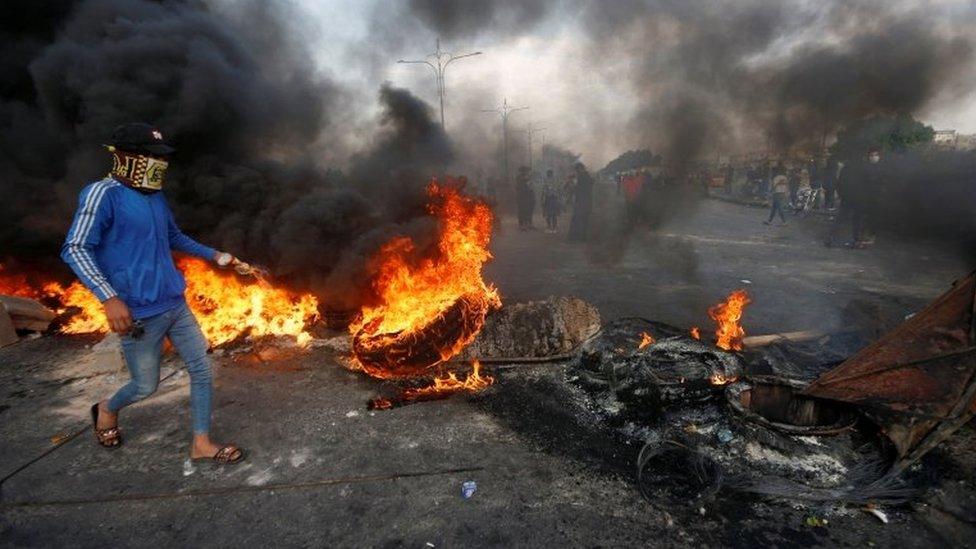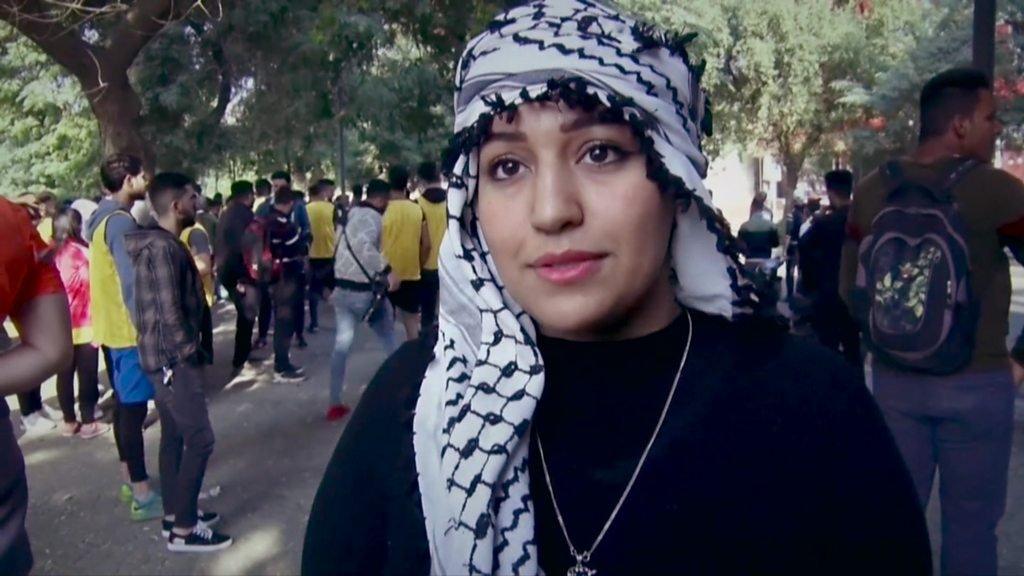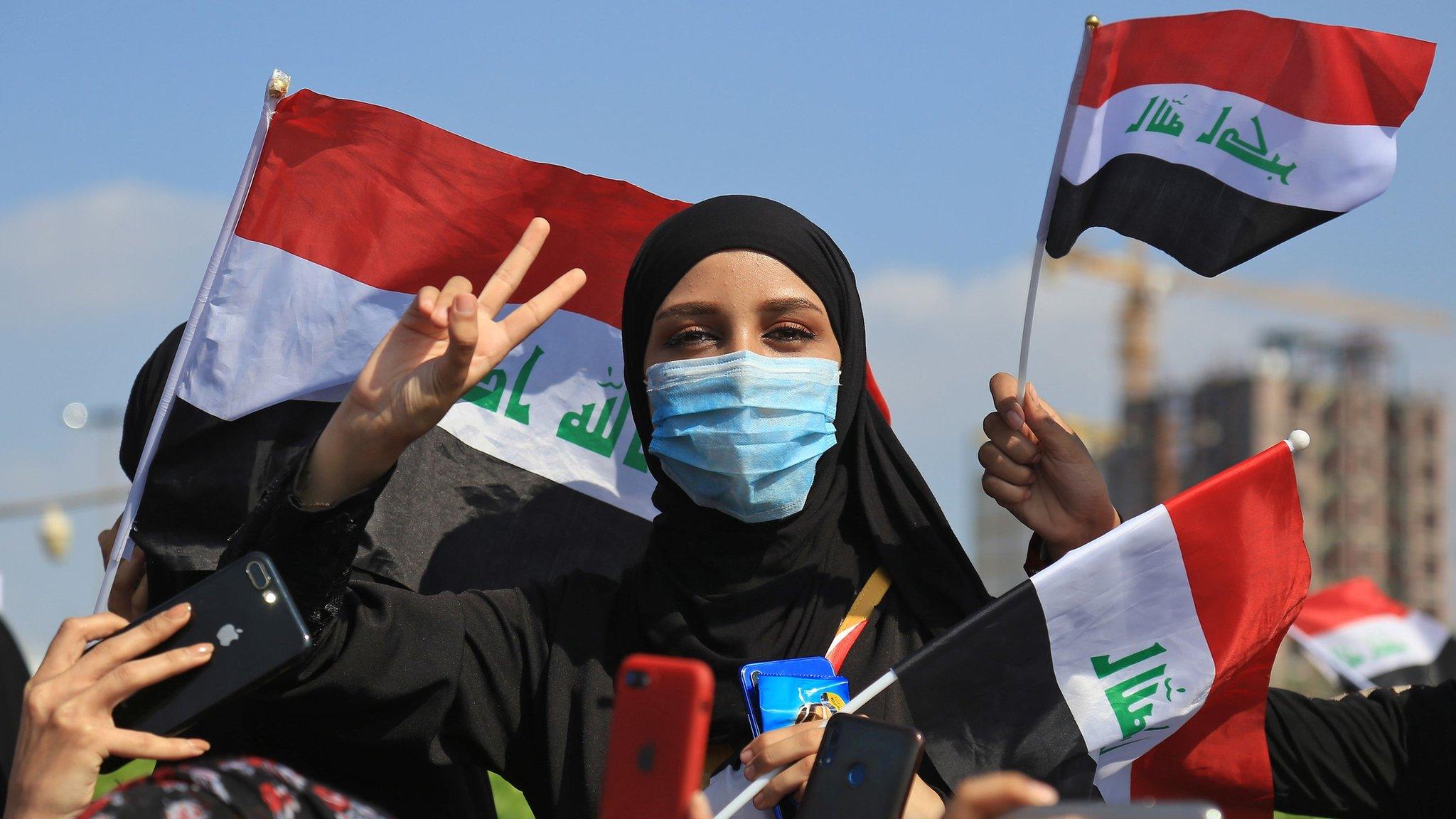Iraq protests: Security forces open fire on protesters
- Published

Protesters blocked roads in and around the southern city of Basra
Iraqi security forces have opened fire on protesters in southern Iraq, killing at least five people, amid ongoing anti-government demonstrations.
At least two people died and some 50 others were injured near the Gulf port city of Basra on Sunday.
Late on Saturday, at least three protesters were killed and more than 40 others injured in Nasiriya.
Since the violence began in October, more than 300 people have died and thousands more have been injured.
People are demanding an end to corruption, more jobs and better public services in the demonstrations, which have mostly affected southern Iraq and the capital Baghdad.
A group of young people in Baghdad found a different way to protest against the government.
On Sunday demonstrators set fires outside government buildings, blocked bridges and shut schools in Nasiriya, about 300km (186 miles) south of Baghdad.
Officials had issued a directive to reopen schools - Sunday is the first day of the working week in Iraq - but demonstrators have ignored it.
Late on Saturday, medical authorities had to evacuate children from a hospital in central Nasiriya after tear gas spread into the building amid the violence, Reuters news agency reported.

Further south, near Basra, demonstrators have blocked main roads leading to the port at Umm Qasr.
Clashes also took place in the holy city of Karbala overnight, and about 35 people are thought to have been injured.
Why are people protesting?
Prime Minister Adel Abdul Mahdi took office just over a year ago, promising reforms that have not materialised.
On 1 October, young Iraqis angered by his failure to tackle high unemployment, endemic corruption and poor public services took to the streets of Baghdad for the first time.
The protests escalated and spread across the country after security personnel responded with deadly force.
The story behind an abandoned high-rise taken over by protesters in Baghdad
After the first wave of protests, which lasted six days and saw 149 civilians killed, Mr Abdul Mahdi promised to reshuffle his cabinet, cut the salaries of high-ranking officials, and announced schemes to reduce youth unemployment.
But the protesters said their demands had not been met and returned to the streets in late October.
President Barham Saleh has said Mr Abdul Mahdi will resign if parties can agree on a replacement.
- Published23 November 2019

- Published31 October 2019
